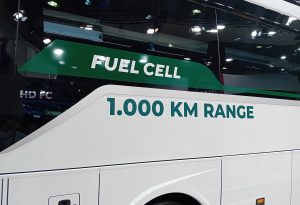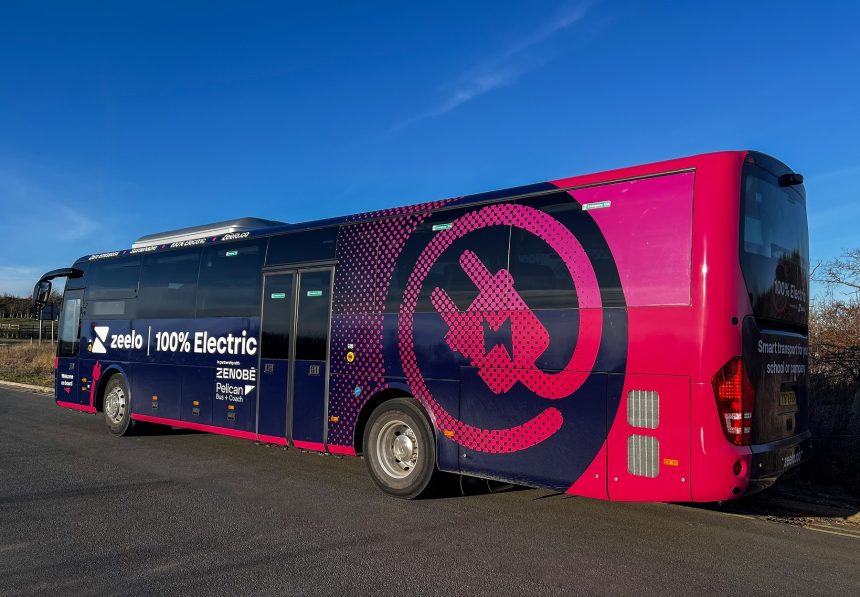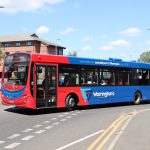A call for evidence (CfE) on infrastructure provision to support zero-emission coach and HGV fleets has been published by the Department for Transport (DfT).
Submissions will inform the development of an infrastructure strategy for those vehicles, which DfT says will be published in 2024.
That subsequent document will “set strategic direction and outline the respective roles and responsibilities of both government and industry to ensure the delivery of the refuelling and recharging infrastructure required to meet the end of sale dates for new non-zero-emission HGVs,” the CfE says. No such date has yet been set for new non-zero-emission coaches.
The CfE seeks information on the current market and the future supply, uptake and use of zero-emission coaches and HGVs, and their fuelling or charging requirements. It will also inform wider future decision-making about those vehicles.
Bringing coaches and HGVs together reinforces comments made on 29 June by Under-Secretary of State for Transport Richard Holden on the similarity of their zero-emission trajectories. Progression towards a strategy that combines elements of both will likely be further welcomed by the coach industry.
Zero-emission coach challenges similar to HGV
Noted in the CfE is that coaching “faces similar technical decarbonisation challenges to the road freight sector, given the similarities in vehicle size, weight and journey distance, and the diversity of business models to be considered in both.”
Alignment of infrastructure for zero-emission vehicles in both classes is thus viewed as important, although DfT cautions that there will also be differences between them in their respective needs.

While charging and fuelling requirements will likely be similar, passenger and safety considerations will exist for coaches that do not apply to HGVs.
Various zero-emission-specific questions are asked of coach operators by the CfE.
Topics include driveline technology considerations, implications of the shift upon existing operations, behavioural change, and charging and fuelling estimations, including whether that will be in depots or on the road.
Responses are also sought on barriers to installing and accessing relevant infrastructure, scope for collaboration both within the industry and with the HGV sector, and international journeys.
No change of view on hydrogen combustion?
The pending strategy for zero-emission coach and HGV infrastructure will include use cases for both battery- and hydrogen fuel cell-electric. There is no sign of DfT relaxing its view of hydrogen combustion. The Department previously said that such a process is not viewed as zero-emission, although it was recently suggested that a review of that could be in hand.
In a notably bold statement, the CfE outlines a belief that battery-electric will develop over coming years “to suit the majority of coach applications,” but “significant advances” in hydrogen fuel cell technology are also expected. The latter includes via work being done by Wrightbus.
Less positively, £200 million of funding towards zero-emission HGVs announced by DfT at the same time as the CfE was published has no coach component.
Responses to the CfE maybe submitted online or via post, with a closing date of 14 December. A summary, and a government response, will follow, in addition to the eventual strategy document.
Access the call for evidence here.



























